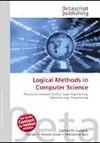相干差分PCF
IF 1
4区 数学
Q4 COMPUTER SCIENCE, THEORY & METHODS
引用次数: 0
摘要
微分微积分的范畴模型是可加的范畴,因为莱布尼茨规则要求两个表达式的和。这意味着,就微分微积分和微分线性逻辑而言,这些模型具有有限的非确定性,实际上这些语言本质上是非确定性的。在之前的一篇论文中,我们介绍了一个不需要加性的分类框架,它与确定性模型(如相干空间)和概率模型(如概率相干空间)兼容。在这个语义的基础上,我们发展了一种确定性版本的微分演算语法。这种新的微分方法的一个很好的特性是它与一般的术语不动点兼容,因此我们的语言实际上是PCF的微分扩展,我们为其提供了完全确定性的操作语义。本文章由计算机程序翻译,如有差异,请以英文原文为准。
A coherent differential PCF
The categorical models of the differential lambda-calculus are additive categories because of the Leibniz rule which requires the summation of two expressions. This means that, as far as the differential lambda-calculus and differential linear logic are concerned, these models feature finite non-determinism and indeed these languages are essentially non-deterministic. In a previous paper we introduced a categorical framework for differentiation which does not require additivity and is compatible with deterministic models such as coherence spaces and probabilistic models such as probabilistic coherence spaces. Based on this semantics we develop a syntax of a deterministic version of the differential lambda-calculus. One nice feature of this new approach to differentiation is that it is compatible with general fixpoints of terms, so our language is actually a differential extension of PCF for which we provide a fully deterministic operational semantics.
求助全文
通过发布文献求助,成功后即可免费获取论文全文。
去求助
来源期刊

Logical Methods in Computer Science
工程技术-计算机:理论方法
CiteScore
1.80
自引率
0.00%
发文量
105
审稿时长
6-12 weeks
期刊介绍:
Logical Methods in Computer Science is a fully refereed, open access, free, electronic journal. It welcomes papers on theoretical and practical areas in computer science involving logical methods, taken in a broad sense; some particular areas within its scope are listed below. Papers are refereed in the traditional way, with two or more referees per paper. Copyright is retained by the author.
Topics of Logical Methods in Computer Science:
Algebraic methods
Automata and logic
Automated deduction
Categorical models and logic
Coalgebraic methods
Computability and Logic
Computer-aided verification
Concurrency theory
Constraint programming
Cyber-physical systems
Database theory
Defeasible reasoning
Domain theory
Emerging topics: Computational systems in biology
Emerging topics: Quantum computation and logic
Finite model theory
Formalized mathematics
Functional programming and lambda calculus
Inductive logic and learning
Interactive proof checking
Logic and algorithms
Logic and complexity
Logic and games
Logic and probability
Logic for knowledge representation
Logic programming
Logics of programs
Modal and temporal logics
Program analysis and type checking
Program development and specification
Proof complexity
Real time and hybrid systems
Reasoning about actions and planning
Satisfiability
Security
Semantics of programming languages
Term rewriting and equational logic
Type theory and constructive mathematics.
 求助内容:
求助内容: 应助结果提醒方式:
应助结果提醒方式:


